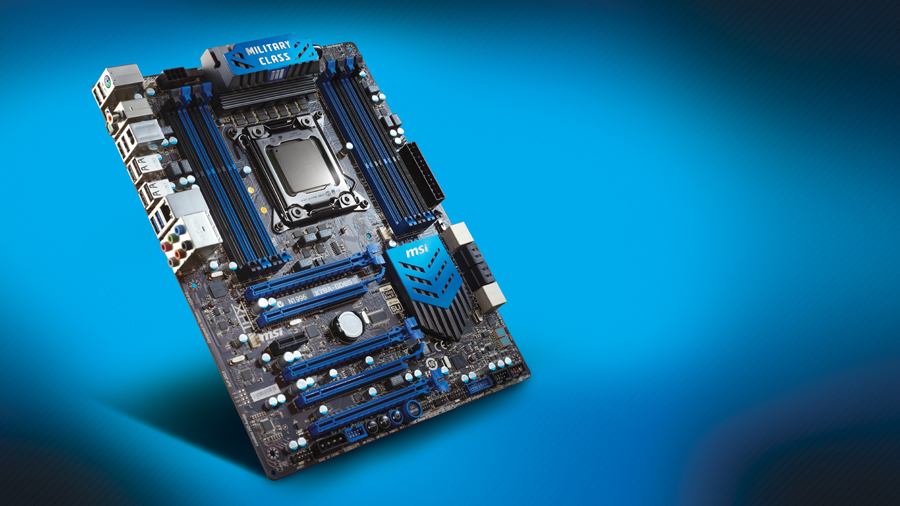High-Performance Computing – getting ready for the future
We Need to be Ready for a Supercomputer Future

According to IDC, the global high-performance computing (HPC) market has recovered from the recession and is poised to grow at a compound annual growth rate (CAGR) of 6.8 to 7.8 percent through 2016.
Historically, the market has been dominated by academic institutions with the necessary funding to take on big supercomputer projects.
This is changing. Fuelled by an understanding of HPC's potential to reduce 'time to insight' and accelerate time-to-market, commercial organisations from engineering firms to geoscience companies are expressing interest in HPC.
In the UK, the Government is playing its part too, with the recent announcement that it will invest £270 million into research into quantum computing, highlighting the seriousness of its intent.
But for the commercial potential of HPC to be fulfilled, organisations need to address two perennial issues: the continuing engineering and computing skills shortage and the high cost and inflexible nature of many systems in use today. At Bull, we believe a combination of talent and technology holds the key.
Addressing the Skills Gap
Skills shortages still represent an obstacle to HPC's long-term success. The decline in numbers enrolling in computing and engineering courses remains a concern.
According to entrepreneur Sir James Dyson, Britain "produced 12,000 engineering graduates a year – and there are currently 54,000 vacancies. It's predicted that in two years' time there will be 200,000 vacancies."
Are you a pro? Subscribe to our newsletter
Sign up to the TechRadar Pro newsletter to get all the top news, opinion, features and guidance your business needs to succeed!
That said, many universities in the UK are developing courses that respond to industry's needs. Also, there remains a rich source of people, even among non-technology graduates with the potential to become excellent HPC consultants. The question is how can industry attract and then develop this talent?
Some technology businesses are doing this themselves and building networks of HPC specialists to identify and develop people. Others are working with universities to provide post-grad and pre-grad education to introduce valuable skills to the market. Bull does this in the UK with Warwick University for example.
When they engage with recruiters, technology companies should look to deal with specialists that can spend time identifying what each is looking for. That means they may only deliver up two or three candidates for each available HPC spot but those candidates are more likely to fit the bill.
Finding a Simpler Solution
Technology can also play a key role. To accelerate adoption and help to bridge the skills gap, vendors need to make HPC systems easy-to-understand and use.
By doing so, they will help drive their customers to adopt flexible architectures and make technology more accessible. Second, providers need to work with commercial customers to ensure that software and applications are modified to leverage the scale of computing systems that HPC typically supports.
Running alongside these developments is the emergence of a new HPC delivery model, HPC-on-Demand. This involves the solutions provider investing in infrastructure that gives prospective users the opportunity to access that computing resource rather than investing in complex IT hardware upfront.
HPC-on-Demand addresses the major difficulty that many engineering companies have in managing their requirement for IT systems: their inability to accurately anticipate their future workload. In most cases there will be no predictable pattern of need.
If a company implements HPC in a traditional way they typically run the risk of either having to overprovision or being limited in the design work they can do because they do not have sufficient equipment in place.
The best way to overcome this is to meet peak requirements automatically on-demand. By using this approach, companies no longer need worry about the complexities of running their own environment or the need for highly-skilled specialised teams. Instead they can tap into the available computing capability across the web as and when needed.
The emergence of HPC-on-Demand is opening out the technology to a wider range of companies including many in the manufacturing and engineering spaces who have basic computing resources and a lack of specialist IT skills.
Freed from the shackles of complex technology, such organisations now have freedom to innovate. With HPC-on-Demand, they have no need for physical infrastructures and no more maintenance requirements, while still having access to high-performance tools for innovation.
The HPC market has the potential for an exciting future. Now all that remains is for businesses to create the right blend of talent and technology to turn that prospect into a commercial reality.
- Andrew Carr is chief executive officer (CEO), Bull UK & Ireland. In this post, he is concentrating on spearheading the company's drive to become a high-performance organisation, a transition he helped to kick-start in his previous role as sales and marketing director